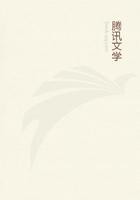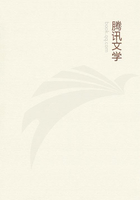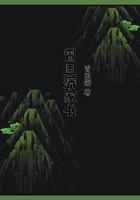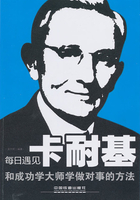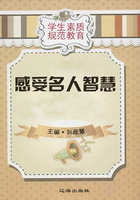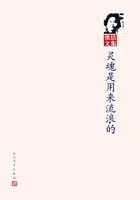But we need not demand for earth the organs by which we, ourselves, act: not even all the animals have these; some, without ears perceive sound.
For sight it would not need eyes- though if light is indispensable how can it see?
That the earth contains the principle of growth must be admitted; it is difficult not to allow in consequence that, since this vegetal principle is a member of spirit, the earth is primarily of the spiritual order; and how can we doubt that in a spirit all is lucid?
This becomes all the more evident when we reflect that, besides being as a spirit lightsome, it is physically illuminated moving in the light of kosmic revolution.
There is, thus, no longer any absurdity or impossibility in the notion that the soul in the earth has vision: we must, further, consider that it is the soul of no mean body; that in fact it is a god since certainly soul must be everywhere good.
27.If the earth transmits the generative soul to growing things- or retains it while allowing a vestige of it to constitute the vegetal principle in them- at once the earth is ensouled, as our flesh is, and any generative power possessed by the plant world is of its bestowing: this phase of the soul is immanent in the body of the growing thing, and transmits to it that better element by which it differs from the broken off part no longer a thing of growth but a mere lump of material.
But does the entire body of the earth similarly receive anything from the soul?
Yes: for we must recognize that earthly material broken off from the main body differs from the same remaining continuously attached;thus stones increase as long as they are embedded, and, from the moment they are separated, stop at the size attained.
We must conclude, then, that every part and member of the earth carries its vestige of this principle of growth, an under-phase of that entire principle which belongs not to this or that member but to the earth as a whole: next in order is the nature [the soul-phase], concerned with sensation, this not interfused [like the vegetal principle] but in contact from above: then the higher soul and the Intellectual-Principle, constituting together the being known as Hestia [Earth-Mind] and Demeter [Earth-Soul]- a nomenclature indicating the human intuition of these truths, asserted in the attribution of a divine name and nature.
28.Thus much established, we may return on our path: we have to discuss the seat of the passionate element in the human being.
Pleasures and pains- the conditions, that is, not the perception of them- and the nascent stage of desire, we assigned to the body as a determined thing, the body brought, in some sense, to life: are we entitled to say the same of the nascent stage of passion? Are we to consider passion in all its forms as vested in the determined body or in something belonging to it, for instance in the heart or the bile necessarily taking condition within a body not dead? Or are we to think that just as that which bestows the vestige of the soul is a distinct entity, so we may reason in this case- the passionate element being one distinct thing, itself, and not deriving from any passionate or percipient faculty?
Now in the first case the soul-principle involved, the vegetal, pervades the entire body, so that pain and pleasure and nascent desire for the satisfaction of need are present all over it- there is possibly some doubt as to the sexual impulse, which, however, it may suffice to assign to the organs by which it is executed- but in general the region about the liver may be taken to be the starting point of desire, since it is the main acting point of the vegetal principle which transmits the vestige phase of the soul to the liver and body- the seat, because the spring.
But in this other case, of passion, we have to settle what it is, what form of soul it represents: does it act by communicating a lower phase of itself to the regions round the heart, or is it set in motion by the higher soul-phase impinging upon the Conjoint [the animate-total], or is there, in such conditions no question of soul-phase, but simply passion itself producing the act or state of [for example] anger?
Evidently the first point for enquiry is what passion is.
Now we all know that we feel anger not only over our own bodily suffering, but also over the conduct of others, as when some of our associates act against our right and due, and in general over any unseemly conduct.It is at once evident that anger implies some subject capable of sensation and of judgement: and this consideration suffices to show that the vegetal nature is not its source, that we must look for its origin elsewhere.
On the other hand, anger follows closely upon bodily states;people in whom the blood and the bile are intensely active are as quick to anger as those of cool blood and no bile are slow; animals grow angry though they pay attention to no outside combinations except where they recognize physical danger; all this forces us again to place the seat of anger in the strictly corporeal element, the principle by which the animal organism is held together.Similarly, that anger or its first stirring depends upon the condition of the body follows from the consideration that the same people are more irritable ill than well, fasting than after food: it would seem that the bile and the blood, acting as vehicles of life, produce these emotions.
Our conclusion [reconciling with these corporeal facts the psychic or mental element indicated] will identify, first, some suffering in the body answered by a movement in the blood or in the bile: sensation ensues and the soul, brought by means of the representative faculty to partake in the condition of the affected body, is directed towards the cause of the pain: the reasoning soul, in turn, from its place above the phase not inbound with body-acts in its own mode when the breach of order has become manifest to it: it calls in the alliance of that ready passionate faculty which is the natural combatant of the evil disclosed.

